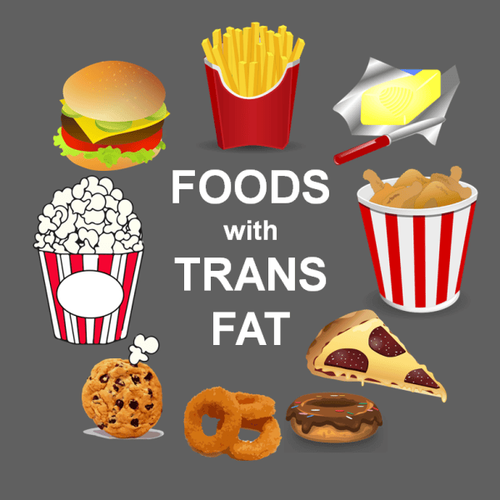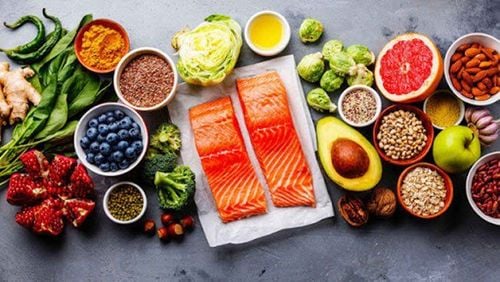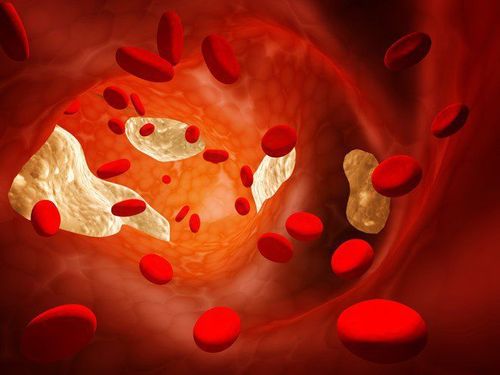This is an automatically translated article.
In the daily diet, good fats, also known as unsaturated fats, play an extremely important role, helping to provide energy for the body to grow and develop. A diet rich in unsaturated fats is especially beneficial for the health and development of children.1. Good fats
Humans cannot create the essential fatty acids for the body, so we must absorb this nutrient source from foods every day. But when it comes to fats, many people fear that they will have an adverse effect on the heart because they increase cholesterol, as well as make the body overweight and obese due to too many calories. In fact, the above concept is only partially true because besides unhealthy fats like saturated and trans fats, there are also healthy fats, also known as unsaturated fats. Unsaturated fats exist as:
Monounsaturated fats: Have the ability to reduce bad cholesterol. Polyunsaturated fats: Typically two omega 3 (or alpha-linolenic acid) and omega 6 (or linolenic acid), reduce both bad and good cholesterol. Both groups of unsaturated fats are considered healthy for the body when consumed in moderation. Good fats help reduce the risk of atherosclerosis, cholesterol production and limit the incidence of cardiovascular disease. A diet rich in unsaturated fats is especially beneficial for the health and development of children.
2. Monounsaturated Fat
Simple fats do not solidify at room temperature and are found in many vegetables, beans, vegetable oils and some nuts. This type of fat is always recommended by nutritionists because it has the ability to reduce bad cholesterol and does not affect good cholesterol.
Lowering blood cholesterol and cardiovascular disease Priority should be given to choosing foods containing monounsaturated fats in the daily diet to contribute to improving blood cholesterol levels and preventing the risk of health problems. cardiovascular health.
Control type 2 diabetes Moreover, according to a scientific study on the benefits of unsaturated fats, monounsaturated fats are especially effective in helping to reduce the incidence of disease as well as control the syndrome. type 2 diabetes.
3. Polyunsaturated Fats
Polyunsaturated fats are less stable, more prone to oxidation and rancid (rancid) than monounsaturated fats. This is the type of fat in the vegetable oils of cereal grains, mainly in the form of polyunsaturated fatty acids (PUFAs) or Omega-3 and Omega-6. Consuming animal-based foods like salmon and tuna also makes it easier for the body to absorb polyunsaturated fats.
Similar to monounsaturated fats, polyunsaturated fats also have the ability to lower the risk of cardiovascular diseases and reduce bad cholesterol in the blood. Although this type of fat also affects good cholesterol, it is still suggested that the extent of the positive effects on the body of polyunsaturated fats is better.
4. Omega-3 and Omega-6
Two substances Omega-3 and Omega-6 belong to the group of polyunsaturated fats, which are common fatty acids that humans need to absorb from certain foods. They have the ability to help the body synthesize prostaglandins - essential for easy blood circulation, as well as preventing cardiovascular diseases.
Omega-3 fatty acids are commonly found in seafood such as salmon, herring, sardines and mackerel. This is a very beneficial nutrient for the baby's eye and brain development during the first 6 months of life. Besides, Omega-3 is also popular with many parents to supplement their children, help them be smart, learn better and strengthen their resistance. For adults, regular supply of Omega-3 will also have many positive effects including:
Reducing morning stiffness for people with rheumatoid arthritis; Preventing heart diseases such as: inflammation or heart failure and arrhythmia; Lower total cholesterol levels; Fight coronary heart disease, support blood circulation; Stable blood pressure regulation. Besides Omega-3, Omega-6 fatty acids are also a form of polyunsaturated fat. This fatty acid is found in sunflower seeds, peanuts, canola and soybeans. They help control bad cholesterol, protect the body from cardiovascular diseases. In addition, there are Omega 2 fatty acids contained in fish fat, but less commonly.
5. Benefits of Unsaturated Fats
Fats make up about 18-24% of an adult's body weight, they are present in cell membranes, in the nucleus and mitochondria. Unsaturated fats are involved in the structure and function of certain organs, providing many benefits such as:
Lowers blood sugar by improving insulin resistance Reduces toxins from free fatty acids in the body, help cells function normally and strengthen immunity Play an important role in the transformation and storage of energy Supports the building of nerve tissue and hormones Response to inflammation, manage arthritis Helps the body absorb some essential vitamins like A, D, E and K from foods Provides essential nutrients like the antioxidant vitamin E Despite the benefits of fat Good is a lot, but if consumed in large amounts in the diet, it will cause an excess of calories, which in turn leads to loss of weight control and an increased risk of obesity. Like all fats, unsaturated fats also provide 9 calories per gram. That's why experts generally recommend consuming no more than 30% of total calories from fat, especially for people trying to lose weight.
In general, unsaturated fats, including monounsaturated and polyunsaturated fats, are a group of good fats, providing many important benefits to the body. Should replace bad fats with good fats, but also pay attention to eat only a moderate amount. Because although unsaturated fats tend to lower blood cholesterol and are essential fatty acids, they are also very high in calories, easy to cause weight gain and difficult to lose weight.
Please dial HOTLINE for more information or register for an appointment HERE. Download MyVinmec app to make appointments faster and to manage your bookings easily.













